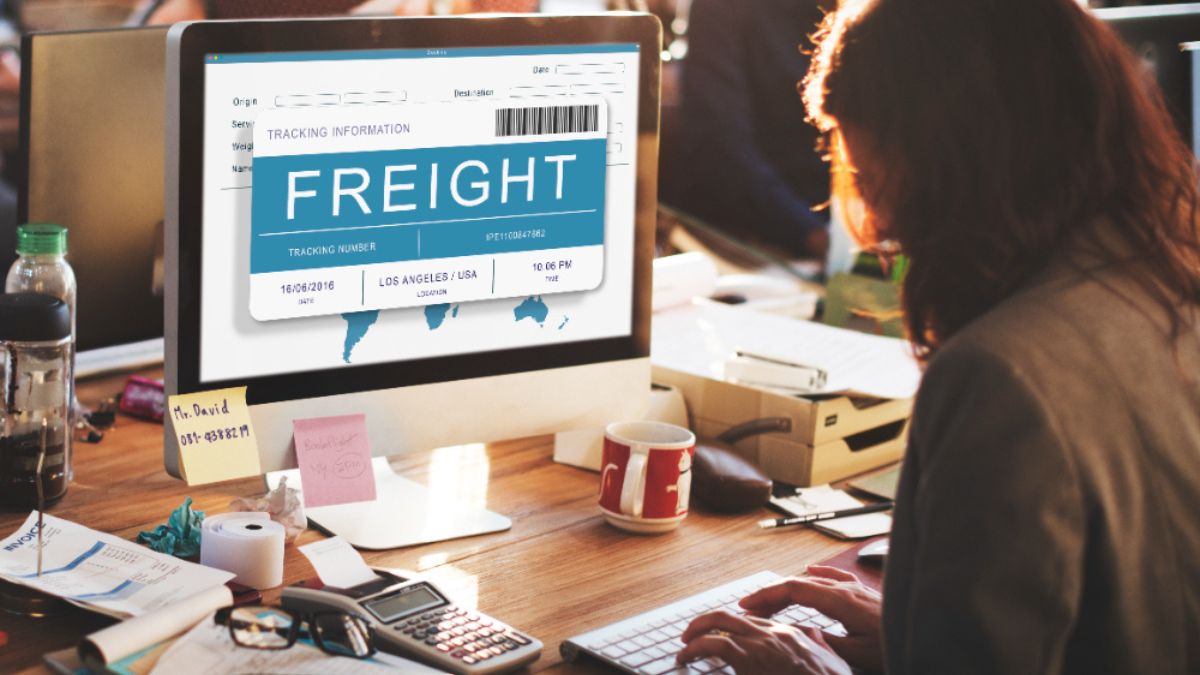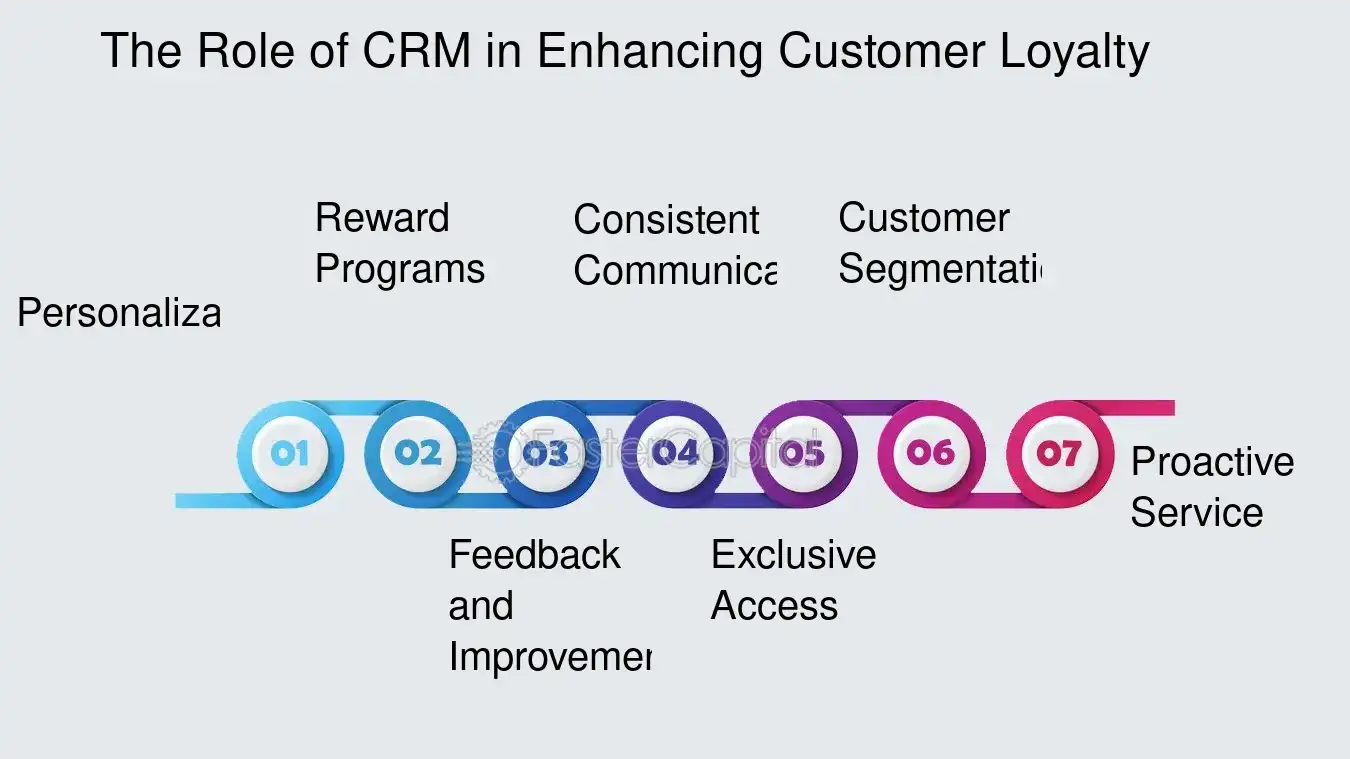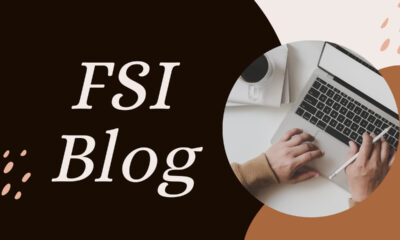Business
Maximizing Productivity: Steps to Boost Efficiency in Your Business

Productivity is essential in any business. It determines the efficiency and success of your company. As a business owner or manager, it is important to constantly find ways to improve productivity to stay competitive in today’s fast-paced market. In this blog post, we will discuss several steps that you can take to boost efficiency and maximize productivity in your business.
Set clear goals
The first step in maximizing productivity is to set clear and specific goals for your business. This gives you and your team a sense of direction and purpose, helping everyone stay focused on what needs to be achieved. Make sure these goals are achievable and realistic, with a clear timeline for completion. By setting these goals, you will be able to measure your progress and identify areas that need improvement.
Prioritize tasks
Productivity can easily be hindered by a never-ending list of tasks and responsibilities. To avoid feeling overwhelmed, it is important to prioritize your tasks based on their urgency and importance. Start by identifying the most critical tasks that need to be completed first and allocate your time accordingly. This will help you focus on what needs to be done to achieve your set goals.
Delegate effectively
As a business owner or manager, it can be tempting to try and do everything yourself. However, this can lead to burnout and decreased productivity. It is important to delegate tasks effectively to your team members. Identify their strengths and assign tasks that align with their skills. This not only lightens your workload but also empowers your team members and increases their motivation.
Utilize technology
In today’s digital age, there are countless tools and software available to help increase productivity in the workplace. These tools can automate repetitive tasks, streamline communication, and improve organization. Take some time to research and invest in technology that best suits the needs of your business.
Encourage breaks and time off
While it may seem counterintuitive, taking regular breaks and encouraging your team to take time off can boost productivity. Studies have shown that taking short breaks throughout the workday can improve focus and energy levels. Additionally, allowing your team to take vacation time helps prevent burnout and increases motivation when they return to work.
Foster a positive work environment
A positive work environment is crucial for productivity. As a leader, it is important to foster a culture of open communication, trust, and respect within your team. Encourage collaboration and provide constructive feedback to promote growth and improvement. A happy and motivated team is more likely to be productive and work towards achieving the company’s goals.
Implement efficient processes
Inefficient processes can significantly decrease productivity in a business. Take some time to evaluate your current processes and identify areas that can be improved or streamlined. This could involve automating certain tasks, eliminating unnecessary steps, or creating a better workflow. By implementing efficient processes, you can save time and increase efficiency in your business.
Continuous learning and development
Investing in continuous learning and development for yourself and your team can significantly boost productivity. Promote personal and professional growth through workshops, training programs, and web-based courses. This approach not only enhances your team’s skills but also fosters a culture of learning and innovation within your business.
Regularly review and adjust strategies
Productivity is not a one-time achievement, it requires continuous effort and adaptation. It is important to regularly review and adjust your strategies to ensure that they are still effective in achieving your goals. As your business grows and evolves, so should your productivity strategies.
In Conclusion
Maximizing productivity is crucial for the success of any business. By setting clear goals, prioritizing tasks, delegating effectively, utilizing technology, encouraging breaks and time off, fostering a positive work environment, implementing efficient processes, investing in continuous learning and development, and regularly reviewing and adjusting strategies, you can boost efficiency and productivity in your business.
Remember, productivity is not about working harder, it’s about working smarter. Implement these steps in your business today and see the positive impact on your bottom line.
Business
Procurementnation .com Shipping for Hassle-Free Delivery

Shipping can often feel like a daunting task. With so many options and complexities, it’s easy to get overwhelmed. Enter Procurementnation .com Shipping—a game changer in the world of shipping solutions. This platform is designed specifically to simplify your logistics needs, making your experience smooth and efficient.
Whether you’re a small business owner needing reliable delivery methods or an individual looking for hassle-free shipping options, ProcurementNation.com has got you covered. Let’s dive into what makes this platform stand out in the crowded marketplace of shipping services.
What sets Procurementnation .com Shipping apart from other shipping platforms?
Procurementnation .com Shipping offers a seamless experience that stands out in the crowded shipping landscape. One key feature is its user-friendly interface, designed for both seasoned shippers and newcomers alike. Navigating through options feels intuitive, making it easy to find exactly what you need.
The platform excels with its real-time tracking capabilities. Users can monitor their shipments at any stage of the journey, providing peace of mind that traditional services often lack.
Moreover, Procurementnation .com Shipping prioritizes cost-effectiveness. By comparing various shipping rates from multiple carriers in one place, users can secure the best deals without extensive research.
Customer support is unparalleled here. With a dedicated team ready to assist 24/7, any issues or questions are addressed swiftly—keeping your shipping process smooth and hassle-free.
The benefits of using Procurementnation .com Shipping for your shipping needs
When it comes to shipping, Procurementnation .com Shipping stands out for several reasons. First, the platform simplifies the entire process. Users can easily compare rates from various carriers in one place, ensuring they get the best deal available.
Speed is another advantage. With streamlined workflows and intuitive tools, shipments can be prepared and dispatched quickly. No more wasting time on complicated forms or navigating confusing interfaces.
Additionally, robust tracking features keep customers informed at every stage of their shipment journey. You receive real-time updates that eliminate uncertainty.
Customer support is also a strong point for ProcurementNation.com. Their dedicated team is available to assist with any questions or concerns that may arise during your shipping experience.
Reliability cannot be overlooked. The platform collaborates with top-tier carriers known for timely deliveries and safe handling of goods.
How to use Procurementnation .com Shipping for stress-free and efficient shipping
Using Procurementnation .com Shipping for your shipping needs is simple and intuitive. Start by creating an account on the platform; it only takes a few minutes. Once you’re logged in, you can easily browse available shipping options tailored to your specific requirements.
Next, input the details of your shipment. Whether it’s standard delivery or expedited service, ProcurementNation.com offers various choices to suit different timelines and budgets. The user-friendly interface guides you through each step without confusion.
After selecting your preferred method, review the costs before confirming your order. Transparency in pricing means no hidden fees will surprise you later.
Once confirmed, track your shipment seamlessly within the dashboard for peace of mind throughout the process. With notifications at every stage, you’ll know exactly when to expect delivery without any hassle getting there.
Success stories from satisfied customers
At Procurementnation .com Shipping, customer satisfaction is a top priority. Many users have shared their success stories that highlight the platform’s efficiency and user-friendliness.
One small business owner noted how easy it was to streamline her shipping process. She praised the intuitive interface and quick access to various carriers, which saved her hours each week.
Another satisfied customer highlighted the cost savings they experienced by comparing rates from multiple providers right on the site. This feature helped them choose the best option without sacrificing service quality.
A logistics manager for a growing company expressed relief at no longer dealing with hidden fees or last-minute surprises in shipping costs. Transparency became a game changer for him.
These testimonials reflect how Procurementnation .com Shipping has transformed ordinary shipping tasks into straightforward solutions for numerous businesses across different industries.
Exclusive features and services offered by Procurementnation .com Shipping
ProcurementNation.com offers a range of exclusive features that enhance your shipping experience. With real-time tracking, you can monitor your shipment’s journey every step of the way. This transparency provides peace of mind and keeps you informed.
The platform also boasts an intuitive interface, making it easy to navigate through various shipping options. Whether you’re sending a small package or managing bulk deliveries, you’ll find tailored solutions that fit your needs.
Another standout service is their dedicated customer support team. Available around the clock, they are ready to assist with any questions or concerns you might have.
Additionally, Procurementnation .com Shipping provides integration capabilities with existing business tools. This ensures seamless operations and simplifies order management for businesses of all sizes.
With these unique offerings, every aspect of shipping becomes easier and more efficient for users on ProcurementNation.com.
Conclusion: Why Procurementnation .com Shipping is the best choice for hassle-free shipping
Choosing the right shipping platform can significantly impact your business efficiency. ProcurementNation.com stands out in a crowded marketplace with its user-friendly interface and diverse service options.
Customers appreciate the seamless experience, from instant quotes to real-time tracking. These features eliminate the guesswork and frustration often associated with shipping logistics.
The dedicated support team is another highlight. They are available to assist you every step of the way, ensuring smooth operations no matter where you are in the process.
With competitive pricing and exclusive services tailored to meet varying needs, it’s clear why many turn to ProcurementNation.com for their shipping solutions. The platform empowers users to focus on what truly matters: growing their businesses without worrying about delays or complications in shipping processes.
FAQs
When it comes to hassle-free shipping, Procurementnation .com Shipping stands out as a top choice for businesses and individuals alike. With its user-friendly interface, efficient processes, and dedicated customer support, it’s no surprise that users are turning to this platform for all their shipping needs.
Whether you’re a small business owner or someone looking to ship items occasionally, the exclusive features offered by ProcurementNation.com make the experience seamless. The success stories from satisfied customers illustrate how effective and reliable this platform is in meeting diverse shipping requirements.
For those curious about what else Procurementnation .com Shipping offers or how it can cater specifically to your needs, here are some frequently asked questions:
What types of shipments can I send through Procurementnation .com Shipping?
ProcurementNation.com supports various shipment types including documents, packages, freight services, and international shipping options tailored to fit different requirements.
Is there tracking available for my shipments?
Yes! You can easily track your shipments using the tracking feature on ProcurementNation.com. This allows you to stay updated on your package’s status at any point in time.
How do I sign up for an account?
Creating an account is simple. Visit Procurementnation .com Shipping and follow the step-by-step instructions provided during registration.
Are there volume discounts available?
Absolutely! If you’re planning on making bulk shipments regularly, ProcurementNation.com provides competitive pricing structures designed specifically for high-volume shippers.
Can I get assistance if I encounter issues while using the platform?
Yes! Their customer service team is readily accessible via chat or email should you need help navigating any challenges with your shipment process.
With these insights into Procurementnation .com Shipping offerings and commitment to customer satisfaction in mind, it’s clear why many choose this platform as their primary solution for stress-free shipping experiences.
Business
Crafting Customer Loyalty: The Power of Personalized CRM Experiences

You’re a business owner looking to boost customer retention and satisfaction. But how can you create personalized experiences that keep your customers coming back? This article explores the world of CRM solutions, focusing on how they can help you craft tailored experiences that drive loyalty. We’ll dive into the benefits of CRM systems, highlight key players in the industry and provide practical tips for implementation.
In today’s competitive business landscape, customer loyalty is more crucial than ever. As companies strive to differentiate themselves, personalized experiences have become a key factor in retaining customers and fostering long-term relationships. Customer Relationship Management (CRM) solutions offer powerful tools to achieve this goal, enabling businesses to create tailored interactions that resonate with their audience.
The Power of Personalization
Personalization is no longer a luxury – it’s an expectation. Customers want to feel valued and understood, and CRM systems provide the means to deliver on these expectations. By leveraging data and insights, businesses can craft experiences that speak directly to individual preferences and needs.
One company leading the charge in this area is Lime Technologies. Their innovative CRM solutions Lime Technologies have helped countless businesses transform their customer relationships. With a focus on user-friendly interfaces and powerful analytics, Lime Technologies has become a go-to CRM leverantör for companies across Sweden and beyond.
Unlocking the Potential of CRM
CRM systems offer a wealth of benefits for businesses looking to enhance customer loyalty:
- Centralized Customer Data: By consolidating customer information in one place, CRM systems enable businesses to gain a 360-degree view of their clients. This comprehensive understanding allows for more informed decision-making and targeted communications.
- Automated Processes: CRM solutions streamline workflows, freeing up time for employees to focus on building relationships rather than managing administrative tasks. This efficiency boost can lead to improved customer satisfaction and loyalty.
- Predictive Analytics Advanced: CRM systems, like those offered by CRM företag such as Lime Technologies, use AI and machine learning to predict customer behavior and preferences. This insight allows businesses to proactively address customer needs and anticipate future trends.
Implementing CRM for Success
To maximize the benefits of CRM solutions, consider the following tips:
- Choose the Right System: Select a CRM system that aligns with your business needs and goals. Companies like Lime Sverige offer a range of options tailored to different industries and company sizes.
- Invest in Training: Ensure your team is well-versed in using the CRM system. Many providers, including Lime Stockholm, Lime Göteborg and Lime Lund, offer comprehensive training programs to help businesses get the most out of their CRM investment.
- Integrate Across Channels: For a truly personalized experience, integrate your CRM system across all customer touchpoints. This holistic approach ensures consistency and continuity in customer interactions.
The Future of CRM
As technology continues to evolve, so too do CRM solutions. Svenska CRM system providers like Lundalogik Lime CRM are at the forefront of innovation, developing new features and capabilities to meet the changing needs of businesses and customers alike.
From AI-powered chatbots to advanced data analytics, the future of CRM promises even greater opportunities for personalization and customer engagement. By staying ahead of these trends and leveraging the power of CRM solutions, businesses can create lasting customer loyalty and drive long-term success.
In the end, crafting personalized experiences through CRM is about more than just technology – it’s about building meaningful connections with your customers. By harnessing the power of CRM solutions, businesses can create experiences that resonate, engage and ultimately foster lasting loyalty.
Business
Why Metal Bending is Key to Efficient Sheet Metal Fabrication

For several reasons, the bending process is essential to effective sheet metal manufacturing. Sheet metal bending has several benefits that improve output, economy, and product quality, regardless of the project’s complexity—it could be simple brackets or intricate car components.
1. Cost-Effective Production
With sheet metal bending, manufacturers may build complex forms out of a single metal sheet without having to weld or glue many sections together. By doing this, assembly pieces are kept to a minimum, which lowers production time and material costs. Manufacturers can save production costs and turnaround times by bending a sheet into the desired shape rather than cutting and assembling individual sections.
Additionally, sheet metal bending is now more efficient than ever because of developments in automation and CNC (Computer Numerical Control) technology. For example, automated press brakes can handle exact bends with little assistance from a human, saving labor expenses and eliminating mistakes made during manufacturing. Consistent outcomes are guaranteed by this degree of automation, which is crucial for businesses that depend on mass production.
2. Enhanced Design Flexibility
The design flexibility that sheet metal bending provides is another factor that makes it essential for effective manufacture. Modern bending machinery makes it easy for producers to generate elaborate curves and multi-angled components, among other complex designs. Businesses are able to quickly prototype new designs and satisfy a wide range of client requests because of this degree of flexibility.
For instance, delicate components are housed in bent metal enclosures in the electronics sector. For these enclosures to fit well and offer sufficient protection, they must be precisely made. Customized designs that adhere to precise standards are made easier by the ability to bend metal into precise, intricate shapes.
Additionally, sheet metal bending accommodates a variety of material thicknesses, allowing producers to deal with thin, light sheets for applications where strength must be maintained but weight must be decreased. This is especially crucial in sectors like aircraft, where weight loss is essential to effectiveness and performance.
3. Structural Integrity and Durability
The preservation of the material’s structural integrity during the fabrication process is guaranteed by the bending of sheet metal. When bending is done properly, the material is strengthened along the bent lines, improving its resistance to stress and fatigue as well as its overall longevity. This is particularly crucial for sectors like construction and the automotive industry that demand sturdy components.
For instance, sheet metal bending is used by automakers to make chassis parts, body panels, and brackets that can resist normal wear and tear. These parts are made sturdy and resistant to bending or breaking under stress by the bending process, which results in automobiles that last longer and require less maintenance.
Modern bending processes provide precision and uniformity, which enhance the overall quality of the manufactured product. Manufacturers can create products with precise tolerances and dimensional accuracy thanks to the technique’ low material distortion, which lessens the need for secondary steps like trimming or reworking.
4. Reduced Waste and Sustainability
Sheet metal bending is a big part of cutting waste in an era where manufacturers are starting to prioritize sustainability. Unlike other fabrication techniques like laser cutting or stamping, this procedure produces little to no scrap because it doesn’t require cutting or removing material. This reduces the need for waste disposal and conserves raw materials, both of which lead to a more sustainable production process.
Furthermore, by reducing excess, producers can optimize material utilization through the application of sophisticated bending techniques. For example, producers may guarantee that the metal sheet is used efficiently and lower the possibility of errors that could result in trashed components by properly estimating the needed bend radius and angles.
5. Widespread Applications Across Industries
Given its adaptability, sheet metal bending is a crucial procedure in many different sectors. Manufacturers may produce parts with exceptional precision and durability using the bending process, whether they are utilized to construct parts for consumer electronics, medical equipment, or industrial gear.
For instance, sheet metal bending is utilized in the aerospace sector to make robust and lightweight parts for engine mounts, wings, and fuselages of aircraft. The success of the finished product depends on the precision of the bending process because these parts must adhere to strict safety and performance standards.
Bent metal sheets are used in the building industry for structural frames, cladding, and roofing. Architects and engineers can design buildings with distinctive features while preserving the strength and structural integrity of the structure because metal can be bent into precise shapes.
Conclusion
A key approach for productive sheet metal services is sheet metal bending, which enables producers to design intricate, long-lasting, and reasonably priced components. The method is crucial to the success of many different businesses since it provides substantial benefits in terms of design flexibility, structural integrity, and sustainability.
Manufacturers can achieve strict performance criteria, streamline production processes, and minimize waste by utilizing the capabilities of contemporary bending equipment. Sheet metal bending will continue to be a crucial component of productive and sustainable production as long as industries continue to change and call for more creative solutions.
-

 Marketing7 months ago
Marketing7 months agoUnlocking the Potential of FSI Blogs: A Comprehensive Guide
-

 Health9 months ago
Health9 months agoAnxiety: Causes and Solutions
-

 Blog10 months ago
Blog10 months agoThe Seating Arrangement Surprise: A Story About Sitting Next to a Scary Yakuza
-

 Tech8 months ago
Tech8 months agoOprekladač: A Comprehensive Guide to AI Translation Technology
-

 Health7 months ago
Health7 months agoDiscover the World of Ztec100.com: Your Ultimate Guide to Tech, Health, and Insurance
-

 Blog10 months ago
Blog10 months agoUnderstanding Chancerne: Unveiling the Science Behind this Enigmatic Phenomenon
-

 Tech9 months ago
Tech9 months agoUnveiling the Wonders of divijos: Revolutionizing Our World
-

 Business9 months ago
Business9 months agoUnderstanding Trading: Unveiling the Dynamics of Financial Markets










